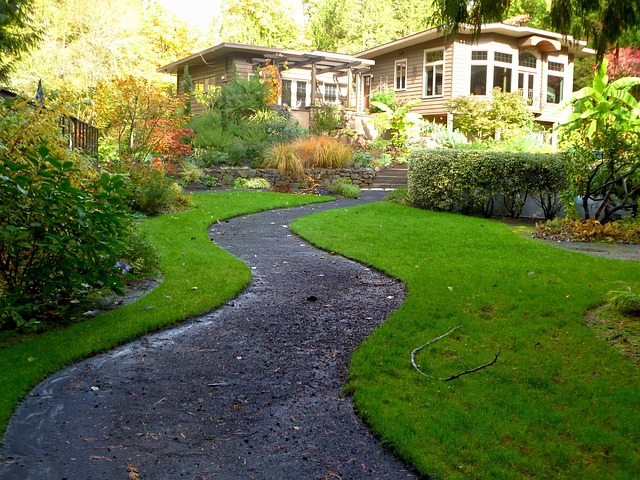Proper yard waste removal and recycling is essential for environmental health and aesthetically pleasing homes. By composting organic materials like leaves and grass clippings, homeowners reduce landfill waste and provide natural fertilizers. Local recycling programs simplify the process, allowing busy individuals to focus on enjoying their outdoor spaces while minimizing environmental impact. Simple steps like composting and recycling wood chips, newspapers, and plastics contribute to a greener community and a healthier garden.
Keeping your garden in top shape can be challenging for busy homeowners, especially when it comes to managing yard waste. This comprehensive guide tackles the issue head-on, offering insights into understanding and mitigating the impact of yard waste. We explore effective strategies tailored for busy lifestyles, focusing on efficient waste reduction and recycling practices. Learn how to transform your garden’s remnants into eco-friendly resources, promoting a greener, more sustainable lifestyle while ensuring seamless yard waste removal.
- Understanding Yard Waste and Its Impact
- Effective Strategies for Homeowners
- Recycling and Eco-Friendly Practices
Understanding Yard Waste and Its Impact

Yard waste, a term that encompasses a range of organic materials like grass clippings, garden trimmings, and fallen leaves, is often an overlooked aspect of home maintenance. However, its proper management is not just about aesthetics; it has significant environmental implications. Neglecting yard waste removal can lead to various issues for busy homeowners and their communities. Overloaded yards not only create unsightly landscapes but also serve as breeding grounds for pests and diseases.
Recycling and responsible disposal of yard waste are essential practices that benefit both the homeowner and the environment. Through proper techniques, such as composting or utilizing dedicated recycling programs, homeowners can reduce the volume of waste sent to landfills, thereby decreasing greenhouse gas emissions and preserving natural resources. Implementing these sustainable solutions not only ensures a cleaner, healthier outdoor space but also contributes to a greener and more eco-conscious community.
Effective Strategies for Homeowners

For busy homeowners, efficient garden waste management is key to maintaining a healthy outdoor space without taking up precious time. Implementing strategic solutions for yard waste removal and recycling can significantly reduce environmental impact while keeping your garden in top condition. One effective approach is to separate organic materials like leaves, grass clippings, and food scraps for composting. This not only reduces the volume of waste sent to landfills but also provides a rich, natural fertilizer for your garden.
Consider allocating a specific area in your yard or using dedicated bins for compost collection. Many local municipalities offer recycling programs that include yard waste removal, making it easier than ever for homeowners to participate. Utilizing these services ensures proper disposal and recycling of green waste while allowing you to focus on enjoying your outdoor retreat.
Recycling and Eco-Friendly Practices

For busy homeowners, implementing eco-friendly practices for yard waste removal and recycling can seem daunting, but it’s easier than you think. Start by separating organic materials like leaves, grass clippings, and food scraps from other types of waste. These can be composted, reducing the amount of material sent to landfills and providing rich nutrients for your garden. Many municipalities offer composting programs or provide access to community composting facilities, making this step even more convenient.
Additionally, consider recycling as much yard waste as possible. For instance, wood chips from pruned branches can be used as mulch to suppress weeds and retain soil moisture. Old newspapers, cardboard, and certain types of plastic can also be recycled or upcycled into garden art or functional items. By adopting these simple yet effective recycling and composting practices, homeowners can significantly reduce their environmental impact while keeping their gardens healthy and vibrant.
For busy homeowners, efficient garden waste management is key to maintaining a sustainable and environmentally conscious lifestyle. By implementing practical strategies and embracing eco-friendly practices like recycling, you can significantly reduce yard waste, contribute to a greener planet, and save time and resources. Remember, small changes in your gardening habits can lead to substantial benefits for both your home and the environment.
